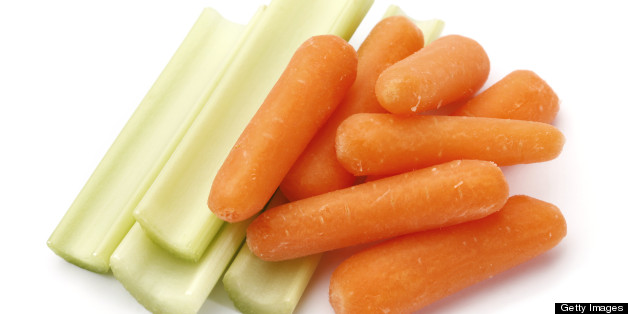Why YoYo Dieting Is Dangerous
Diets will not allow you to achieve your fitness goal. Your fitness goal can only be achieved by a major lifestyle change that includes nutritionally balanced meals and regular exercise. However, when most people think of being on a diet, they immediately think of eating less, or doing without with their favorite foods. Eating less simply to lose weight is a flawed dieting technique, that usually accomplishes a short term weight loss, followed by long term weight gain.
A diet's success or failure is really governed by the same laws of physics that rule all energy transformations. A calorie is a unit of energy, and the law of conservation of energy states that energy sources can neither be created nor destroyed, the calories you eat must either be expended or conserved.
So if you eat too many calories the excess is stored in the body as fat. If you eat too few calories to support your daily needs, you'll have to reach into where your excesses are stored in order to maintain an energy balance. Your body must maintain an equal energy balance (Homeostasis) or gains or losses will take place. If calories are restricted, your body will do whatever it needs to do in order to achieve a balance in energy and fat reserves.
When calories are restricted, your body will begin to break down other nutrients to compensate for the lack of energy. Your body however, doesn't selectively break down just one nutrient, it breaks down them all, stored fats, protein and carbohydrates. If you are trying to lose fat, it's good that your body is breaking down the fat stores, but it is also breaking down protein, which is stored in your muscles and carbohydrates are broken down from muscle glycogen stores. Your body breaks down all three to get the energy supply that it needs.
Your body can't keep breaking down muscle forever so what it does is reduce your Basal Metabolic rate to conserve energy. Your body will now need less energy to achieve the energy balance it needs. Now the restricted amounts of calories that were once helping you lose weight are no longer doing the trick.
One of the more popular and most dangerous methods for weight loss is to reduce or eliminate the amount of carbohydrates you consume. When Carbohydrates are reduced or eliminated you will lose weight, basically because one gram of carbohydrates needs 2.7 grams of water for storage. When you restrict the amount of carbohydrates you eat, you'll not only use up your carbohydrate stores to meet energy demands, you'll also lose large amounts of water during this process, not to mention the lean tissue mass that will be lost. You should also know that you cannot store fat unless insulin is released by your body and the only way your body can produce insulin is when you eat carbohydrates.
About 24 hours after you stop eating carbohydrates, your body begins to break down fat at a very rapid rate in order to receive a substitute for the carbohydrates it is not getting. This is extremely dangerous and could result in death if allowed to progress too far. During this process of turning fat to energy, Ketones are created and you are known to be in a state of Ketosis. In a mild state of Ketosis, your body is depleting fat stores faster than any other type of diet. You can even eat large amounts of Fat and Protein while on this diet and still lose weight. Low Carbohydrate diets which include 50 grams or 200 calories of carbohydrates can cause weakness, apathy, fatigue, vomiting and dehydration. You should not even consider this diet without consulting your family doctor.
If you lose muscle mass, your metabolic rate slows and you burn fewer calories. If you gain muscle mass your metabolic rate increases and you burn more calories. In fact one pound of Fat burns just two calories a day to maintain itself, whereby one pound of lean body mass burns 30 to 50 calories a day to maintain itself.
Exercise, especially weight training, will stimulate and maintain lean muscle mass if you are eating a balanced diet. If you are exercising and not eating properly, your body has no choice but to reach into your muscles and get the nutrients it needs. This will cause you to lose what you are trying so hard to build, muscle mass.
A Typical Dieter Case Study:
Let say our person starts out weighing 150 pounds with a 25 percent body Fat level. (37.5 lbs. of Fat and 112.50 lbs. of lean body mass)
For one reason or another our person overeats and gains 20 lbs. of fat. This persons body fat composition changes so that they now weigh 170 lbs. with a 33.8 percent body fat level. (57.50 lbs. of fat and 112.50 lbs. of lean body mass)
In a panic to lose the weight quickly, our typical diet occurs, with our dieter eating less than 1,000 kcal. a day and skipping meals. When crash dieting to lose the 20 lbs., remember your body composition will change because the 20 lbs. you will lose will not be the same 20 lbs. you gained. Your weight loss will be part fat and part muscle. Your back to weighing 150 lbs. but your body fat level is no longer 25 percent it's 30.3 percent. (45.5 lbs. of fat and 104.5 lbs. of lean body mass)
Our typical dieter eventually falls back into old eating habits and before you know it, they've gained back the 20 lbs. they lost. Once again the weight gain is Fat, and they're back weighing 170 lbs. with a body fat percentage of 38.5 percent. (65.5 lbs. of fat and 104.5 lbs. of lean body mass)
Once again our person diets, losing the 20 lbs. and returns to their weight of 150 lbs.(53.50 lbs. of fat and 96.5 lbs. of lean body mass) The person is back to their original weight, but throughout the years, their body fat composition has changed from 25 percent to 36.6 percent!
This person is getting fatter with each dieting episode. Part of the reason for this is the persons metabolic rate has slowed down because they have lost muscle mass. Yet they continue to eat like they always did. Without changing your eating habits and the number of calories you consume, you are doomed to gain your weight back. Even when you look in the mirror, you may be your original weight, but your body composition has changed so much through years of dieting that you don't like your reflection. The feeling now is, that you must continue to diet to achieve a better image.
As long as typical dieter seek immediate gratification and tries to shed weight as quickly as possible, there is virtually no chance they will ever achieve their fitness goal.
Another pitfall is your bathroom scale. It shows gains that aren't really there and can't tell the difference between fat, water and muscle. Your weight also fluctuates by several pounds throughout the day and weighing yourself too much is not only confusing but discouraging as well. You can't help but be affected by the numbers. If you must weigh yourself do it only once a week and at the same time of day, in order to get consistent results. Don't let the bathroom scale rule your mood or determine the degree of your success and the key to your success is a strong foundation.
Adopting a healthy lifestyle doesn't happen overnight. If you want it to last, you need to adopt healthy habits and perform them one step at a time.
-
Learn Ten Easy Strategies For Long-term Healthy Weight Loss.
Losing weight can be easy for some, but for most like me, it is the h
-
6 Great Tips On How To Choose The Best Weight Loss And Fat Burner Products To Make A Significant Ext
There are several weight loss products in the market today and each of
-
What is Safe Weight Loss? Is Losing 10 Lbs a Week Like the TV Show ‘Biggest Loser’ Safe?
Drawbacks of Being Fat or Overweight If you are someone who is overwei
-
Health And Fitness: Weight Loss Tips
Are you anxious about any weight loss regimen you have? In reality, lo
-
Step Up The Pace Against Unwanted Fat
Around five million American women take up running as the core of t
-
Diet The 3 Most Important Tips To Lose Weight FAST
Enclosed we have outlined the 3 most important tips to lose weight fas
- DON'T MISS
- Will be the Diet Remedy Program, the best 1 For You?
- Diet Pills Its Role In Weight Loss
- The Zone of Weight Loss Success
- Diet Programs The Basics
- Is Fast Weight Loss The Answer
- Diet changes involved with Celiac Disease
- Lost Weight With Gastric Bypass Now Youre Regaining Fix It Fast
- Restaurant Survival 4 Kids
- Keep Weight Off With This Valuable Information
- I May Never Have A Flat Stomach, And Heres Why Thats OK




